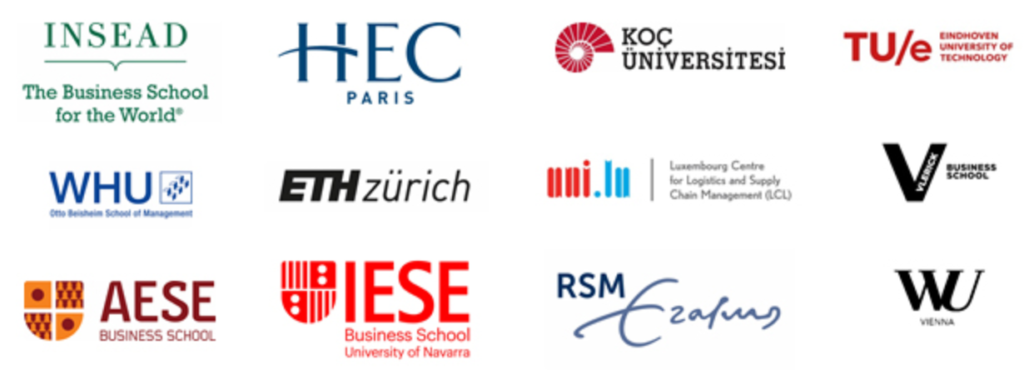
Industrial Excellence Award Europe 2019
As IESE MBA alumni I had the chance to assist today at the Industrial Excellence Award Europe 2019, hosted by IESE Business School in Barcelona and conducted by professor Eduard Calvo (IESE) and Arnd Huchzermeier (WHU).
Since 1995, the Industrial Excellence Award (IEA) competition benchmarks Management Quality for European competitiveness in the industrial and service sectors. This competition focuses on Strategy Deployment, that is, how organizations align distributed activities and knowledge to achieve common strategic goals.

Different companies across Europe present their candidatures through a wide net of the main Business School based in the old continent.
Final candidates for the 2019 edition have been Epta (Italy) and Grifols (Spain). Both companies already awarded at their respective country levels.
Grifols has been finally awarded with the Industrial Excellence Award Europe 2019.

The jury has mainly stressed 4 distinctive points:
- Complex operations due to the global scope of the company, that sources, produces and serves very sensitive products all across the globe,
- Scope to health-care of rare diseases through a high complex and regulated portfolio,
- Going beyond the expected on ensuring quality along the value-chain,
- Pursuing a sustainable growth with a long-term vision by the acquisition of several key-players in the industry to vertically integrate the entire end-to-end value proposition.
Through the journey there have been also several conferences of very well representative organizations awarded on previous editions. They provided to the attendees with their experiences on digital and organizational transformation.
Avoiding getting into details, I would like to share with you some insights that the speakers from Jeanología, HelloFresh, Infineon, Héroux-Devtek, Europastry, John Deere, Celsa and candidates Epta and Grifols shared with us:
- Sustainability is already at the core of the companies,
- Mission and values are built all across the organization,
- Companies goals and KPIs have to be linked to the CSR objectives agreed by the organization,
- Employees are willing to give the extra-mile if they feel company’s impact on society and planet,
- Digital and operational transformation is pointed to improve efficiency and integrating diverse operational models,
- Collaborative robots or Co-bots are in the day-to-day of today’s plants operations. Integration between these two stakeholders keeps going on.
Organizations have a lot of stoppers that slow down digital transformation. It is a must that companies tend to be as flexible as possible by lowering and reducing internal regulations that could prevent new ideas or implementations as well as to facilitate building digitally talented teams empowered as decision-makers.